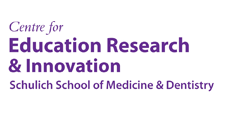Event Title
What Would Aristotle Say?: Reflections on Phronesis as Professional Knowledge–Practical Wisdom in the Health Professions?
Start Date
5-10-2011 12:00 PM
End Date
5-10-2011 1:00 PM
Abstract
Phronesis is generally defined as practical wisdom or knowledge of the proper ends of life. The purpose of this paper is to discuss a recent collaborative thought experiment, that became a book (Kinsella & Pitman, 2011), in which an interdisciplinary group of scholars from health, education and philosophy considered the ways in which phronesis might offer a generative possibility for reconsidering the professional knowledge of practitioners.
In Aristotle’s scheme, phronesis is classified as one of several ‘intellectual virtues’ (Eikeland, 2008). Aristotle (1975) distinguished phronesis from the intellectual virtues of episteme and techne. In Aristotle’s conception (Flyvberg, 2001) episteme is characterised as scientific, universal, invariable, context‐independent knowledge. Techne is characterised as context‐dependent, pragmatic, variable, craft knowledge, oriented toward practical rationality and governed by a conscious goal. Phronesis, on the other hand, is an intellectual virtue that implies ethics. It involves deliberation based on values, concerned with practical judgement and informed by reflection. It is pragmatic, variable, context‐dependent, and oriented toward action.
This investigation began with a shared sense that something of fundamental importance—of moral significance—was missing in the vision of what it means to be a professional, and in the ensuing educational aims in professional schools. The project was framed around the question: “If we take phronesis seriously as an organising framework for professional knowledge, what are the implications for professional education and practice?” The purpose of this paper is to discuss some of the emergent insights generated from this investigation and the implications for health professional education.
1. Aristotle (1975). The Nicomachean ethics. Boston: D. Reidel.
2. Eikeland, O. (2008). The ways of Aristotle: Aristotlean phronesis, Aristotlean philosophy of dialogue, and action research. Bern, Switzerland: Peter Lang.
This document is currently not available here.
What Would Aristotle Say?: Reflections on Phronesis as Professional Knowledge–Practical Wisdom in the Health Professions?
Phronesis is generally defined as practical wisdom or knowledge of the proper ends of life. The purpose of this paper is to discuss a recent collaborative thought experiment, that became a book (Kinsella & Pitman, 2011), in which an interdisciplinary group of scholars from health, education and philosophy considered the ways in which phronesis might offer a generative possibility for reconsidering the professional knowledge of practitioners.
In Aristotle’s scheme, phronesis is classified as one of several ‘intellectual virtues’ (Eikeland, 2008). Aristotle (1975) distinguished phronesis from the intellectual virtues of episteme and techne. In Aristotle’s conception (Flyvberg, 2001) episteme is characterised as scientific, universal, invariable, context‐independent knowledge. Techne is characterised as context‐dependent, pragmatic, variable, craft knowledge, oriented toward practical rationality and governed by a conscious goal. Phronesis, on the other hand, is an intellectual virtue that implies ethics. It involves deliberation based on values, concerned with practical judgement and informed by reflection. It is pragmatic, variable, context‐dependent, and oriented toward action.
This investigation began with a shared sense that something of fundamental importance—of moral significance—was missing in the vision of what it means to be a professional, and in the ensuing educational aims in professional schools. The project was framed around the question: “If we take phronesis seriously as an organising framework for professional knowledge, what are the implications for professional education and practice?” The purpose of this paper is to discuss some of the emergent insights generated from this investigation and the implications for health professional education.
1. Aristotle (1975). The Nicomachean ethics. Boston: D. Reidel.
2. Eikeland, O. (2008). The ways of Aristotle: Aristotlean phronesis, Aristotlean philosophy of dialogue, and action research. Bern, Switzerland: Peter Lang.
